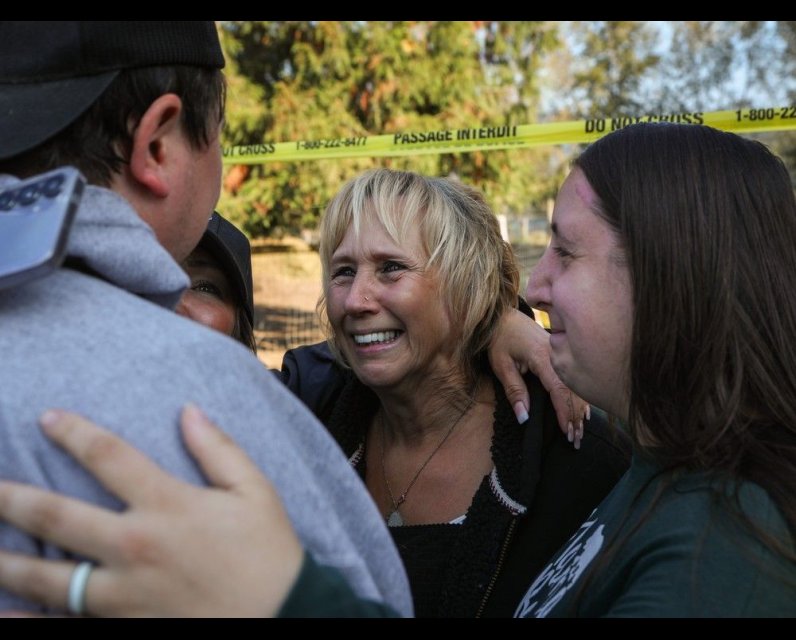The Supreme Court has issued a stay of cull order aimed at a B.C. ostrich farm. What happens now?

Nearly 400 ostriches on the Universal Ostrich Farm in northern B.C. will be spared from a cull while the Supreme Court of Canada (SCC) decides whether to hear the farm owners’ appeal against the Canadian Food Inspection Agency.
Word of the SCC stay arrived on the farm, midday on Wednesday. Cheers went up from supporters as farm spokeswoman Katie Pasitney shared the news.
“Our lawyer called. The Supreme Court of Canada has granted us an interim stay,” she posted to her Facebook .
The owners have been fighting the cull order, prompted by an outbreak of avian influenza on the farm in December 2024. It killed 69 of their ostriches.
The CFIA’s response was to mandate a cull of the entire flock to prevent the spread of the virus. The agency said that the remaining ostriches may not show signs of the disease but they could still be shedding the virus or be the source of further spread of infection to people, livestock and wildlife.
Will the farmers succeed in the Supreme Court?The stay should not be taken as an indication that the country’s highest court will grant the appeal or decide in the farmer’s favour if it does.
It simply prevents a cull from going forward until a decision is made about the appeal application. If it is allowed, the stay will remain in place until a decision is finally rendered by the SCC justices.
The farm has failed to make its case in previous applications to the Federal Court and the Federal Court of Appeal.
It’s also important to note that the SCC hears a minority of the appeal applications it receives .
In 2024, it received 526 and only granted 35. Its basis for doing so can be found in the Supreme Court Act, which refers to cases of “public importance” or “significant law” that warrant a decision by the court.
If it decides not to hear an appeal, it doesn’t have to provide the reason.
Some appeals heard in a given year are left over from the previous year. In 2024, the court heard a total of 50. Of those, 20 succeeded.
What will happen to the birds if the farmers’ appeal fails?If the cull goes ahead, the entire flock will be slaughtered.
The CFIA publishes slaughter guidelines on the federal government’s website.
The birds will most likely be stunned in the head with an electrical device. A leg would be shackled, enabling the bird to be lifted into the air. (Hoisting is not permitted until the bird is “effectively stunned.”)
Then its carotid arteries are cut.
How has the battle over the ostriches played out in recent days?The SCC stay came a day after Pasitney and her mother, Karen Esperson, a co-owner of the farm, were arrested for refusing to leave the bird pen. They were later released.
In a statement, the RCMP said two people were arrested for obstructing the CFIA agents from undertaking their duties. Neither Pasitney, nor Esperson were named.
The CFIA served a warrant on the owners Monday and told them to leave or they would be arrested by the RCMP .
How has interest in the battle developed?The ongoing battle to save the birds from slaughter has garnered widespread interest, including a battle through the court system, protests and attention from prominent figures in the U.S. such as Secretary for Health and Human Services, Robert Kennedy, Jr.
The farmers’ court battle began last spring in the Federal Court of Canada. That’s the court that resolves legal disputes in federally regulated areas against the government and its agencies.
The court upheld the CFIA’s cull order in May, deeming it a necessary measure in the ongoing battle against avian flu.
The farm then appealed to the Federal Court of Appeal. But it upheld the FCC decision in August.
The FCA wrote in its decision that that it recognized it “might lead to the death of over 400 ostriches owned by the appellant, an outcome that would doubtless be very difficult, both financially and emotionally… (but) … the law we are bound to apply inevitably leads to the conclusion that this appeal must be dismissed.”
The court reviewed the CFIA’s “stamping out policy,” which is a health strategy, recognized by the World Organisation for Animal Health , that involves the humane killing of infected, suspected, and exposed animals in eradicating a disease from a farm or area.
In a press release accompanying the FCA’s decision the CFIA confirmed its intent : “Our disease response aims to protect both public and animal health, as well as minimize impacts on the $6.8 billion domestic poultry industry, and the Canadian economy. This supports Canadian families and poultry farmers whose livelihoods depend on maintaining international market access for $1.75 billion in exports.”
How have the farm’s supporters reacted?After the FCA decision came out, the farmers vowed to take their fight to the Supreme Court and continued to argue that the remainder of the flock is healthy and should be tested for avian flu before any cull occurs. Moreover they argued for the scientific value of the ostriches.
They took to social media to make their case, contacting health administration figures such asU.S. Secretary for Health and Human Services Robert Kennedy Jr. who posted a letter on social media in May, saying there would be “significant value” in studying the birds’ immune response to avian flu. The current administrator for the U.S. Centers for Medicare and Medicaid Services, Dr. Mehmet Oz, also voiced his support for saving the birds.
Both were tagged in a Sept. 2 X post made by Paistney about the “scientific merits” the birds would provide by preserving them.
Scientific Merits of Preservation of our Ostriches At Universal Ostrich FarmHelp save us please @elonmusk @trump @DrOz @RFKJr_Official pic.twitter.com/EtRcOf55XK
— Katie Pasitney (Universal Ostrich Farms) (@KatiePasitney) September 2, 2025
New York billionaire John Catsimatidis also took up the cause, stating publicly that he believed the ostriches are crucial to medical research into immunity and treatment of viruses. He promised to fund the farm’s ongoing court battle and wrote a letter to the prime minister , advocating for them.
Chris Sanders , a conservative commentator with a large social medial following, issued a plea to truck drivers to help pick up the birds in Canada to relocate them to farms in Oklahoma, Texas and South Dakota.
They set up a website to rally support.
Meanwhile, many supporters set up camp at the farm.
The RCMP says local businesses have complained of harassment , believed to be coming from the farm’s supporters, who have review-bombed, emailed and called businesses that they think have been contracted by the CFIA to help carry out the cull.
Pasitney has urged the farm’s supporters to remain peaceful but she has also called for them to flood phone lines of businesses whose services may be utilized by the CFIA, in the process, posting phone numbers for specific companies from hotels to gas stations to waste management companies.
Farm supporters have also been urged to contact anyone they believe can help, including local SPCA and humane societies, as well as RCMP and CFIA non-emergency lines.
The B.C. SPCA released a statement in response that “it does not have any authority to intervene or influence the decision-making process where avian influenza is a factor, nor does it have the authority to prevent a legally permitted cull from happening.”
The RCMP says it is investigating reported incidents and promised and that responsible individuals may be held accountable.
Our website is the place for the latest breaking news, exclusive scoops, longreads and provocative commentary. Please bookmark nationalpost.com and sign up for our daily newsletter, Posted, here.




Comments
Be the first to comment